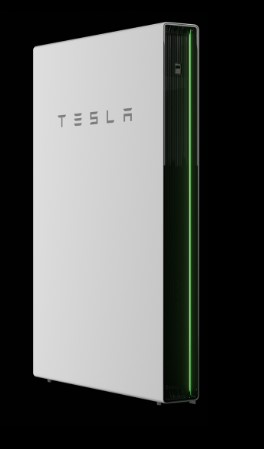Solar Panel Authority Canada
Solar Battery Buying Guide For DIY Projects in Canada
Hi Everyone!
Achieving full energy independence requires the use of solar batteries alongside solar panels. Solar panels generate electricity only during daylight hours, but with the help of solar batteries, that energy can be stored for later use, such as during the night, power outages, or even selling it back to the utility grid. These backup solar batteries can operate as standalone devices or be integrated into a home solar system, automatically providing electricity when the grid goes down for several hours, a day, or even longer. While DIY solar projects differ in some ways from professionally installed systems, batteries aimed at the "Do it Yourself" market are widely available.

Solar and battery integration offers several benefits to the DIY user. By using solar power during the day to power homes and charge batteries, homeowners become less reliant on the grid, especially during peak demand periods. However, the advantages of battery backup systems come at a cost. The installation of a battery backup system represents a significant investment, so it's crucial to understand the process and associated expenses. This comprehensive guide addresses common questions about battery backup systems, including their functionality, manufacturing, cost, DIY applicability, home owner installation, and where to purchase them.
Solar batteries operate by storing excess energy produced by solar panels when it's not immediately needed and discharging it when the panels aren't generating enough power. There are three main configuration options: connecting batteries to solar panels, connecting panels to both batteries and the grid, or using batteries during peak-demand periods to save on electricity costs. Battery backups offer numerous benefits, including energy independence, cost savings, reduced reliance on utilities, uninterrupted power during outages, and clean energy generation. However, they can be expensive for do it yourselfers, with high upfront costs, complicated calculations and limited capacity.
There are different types of batteries available for backup systems, such as lithium-ion, lead-acid, flow, and nickel-cadmium. Lithium-ion batteries are commonly used for home systems due to their lightweight nature and energy efficiency. Lead-acid batteries are cheaper but less efficient and more suitable for small systems, while flow batteries are primarily used for commercial purposes but may become more prevalent in residential applications in the future. Be sure to review our blog post for details about Exploring Common Battery Types For DIY Solar.
When purchasing a battery backup system, there are various options available from manufacturers, solar companies, and battery retailers. The cost depends on the chosen model and the number of batteries required in your DIY home system. Rebates or tax credits may be available from the Canadian or municipal government for battery backups purchased as part of a solar panel system. Professional installation is recommended to ensure safety, but home owners are welcome to do the installation as no permits are required. Also with solar batteries, maintenance requirements are minimal.
Battery backup systems have a lifespan and warranties that guarantee their performance over time. While the storage capacity of batteries may decline over the years, warranties typically ensure a certain level of efficiency for a specified period. Inverters play a crucial role in storing and converting solar energy. They convert between direct current (DC) and alternating current (AC), allowing for efficient energy utilization within the grid or home. Some batteries include inverters for both input and output, while others may require additional external inverters.
In conclusion, whether you are doing the installation yourself or if you hire a contractor, solar batteries are essential for achieving full energy independence. They enable homeowners to store and utilize solar energy during periods without sunlight, ensuring uninterrupted power supply and reducing reliance on the grid. However, understanding the various types of batteries, costs, installation, and maintenance considerations is crucial before making a purchase decision. With the right battery backup system, homeowners can enjoy the benefits of clean energy, cost savings, and increased control over their energy usage.
Have a great day!
Katie
- Posted On: June 12, 2023
Send us your feedback:
Recent Blog Entries...
- Net Metering In Ontario-A Guide To Efficient Home Energy
- Comparing Solar Installations Professional Vs DIY
- Why Solar Energy Shines Brighter For Homes Than Geothermal Energy
- The Economics Of DIY Solar Projects In Canada
- Choosing The Right Inverter For DIY Solar
- Installing Solar Panels A Complete DIY Guide


Comments & Replies
Be the first to comment... Fill in the form below.